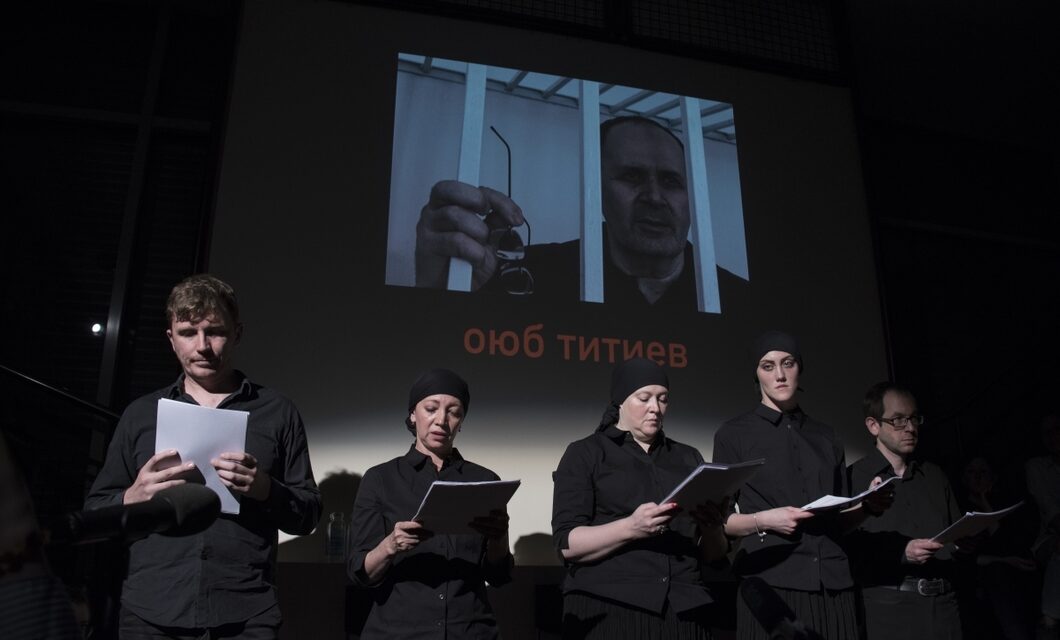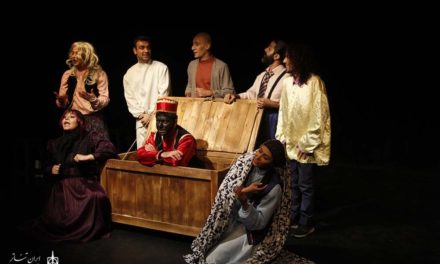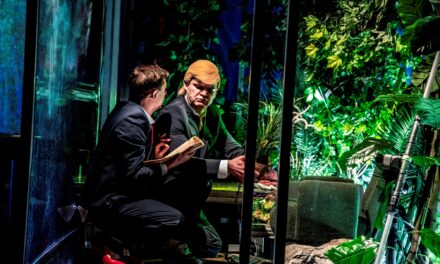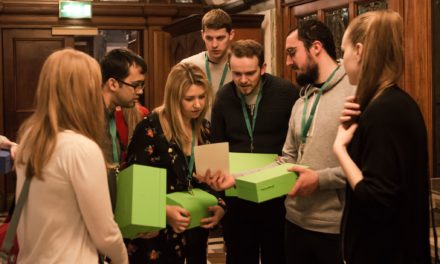Documentary dramas engage the audience with social issues, and in Russia, documentary drama emerged in the late 1990s to bring attention to topics not covered in Russian mainstream news media: imprisonment without trial, human rights violations, unlawful measures against migrants and immigrants, and corruption under Putin. Scholarship about documentary drama by scholar Julie Curtis (University of Oxford) covers controversial issues raised by the documentary plays, most notably in her 2020 anthology, New Drama in Russian: Performance, Politics, and Protest in Russia, Ukraine, and Belarus. Some of this scholarship has focused on how replay and rehearsal in theatrical production before a live audience—society—can bring justice to real-life stories of those who suffered from social injustice. Elena Gremina and Mikhail Ugarov established Teatr.doc in Moscow in 2002 specifically for this purpose. This theatre does not use makeup, decoration, or props. The theatrical material is all in the recorded statements that make the crux of the performed plays. At Teatr.doc, as Curtis remarks in her introduction in the recording of the 2020 radio play OYUB, “The words correspondingly acquire a heightened prominence.” Actors see themselves less as artists and more as human rights activists.
The documentary drama OYUB—created by Elena Gremina, Anna Dobrovolskaia, and Zarema Zaudinova—brings attention to Oyub Titiev, a human rights activist in the Republic of Chechnya, who was active in trying to help protect victims during ethnic cleansings in the Chechen wars in the early 2000s. He was captured, tortured, and—after a public show trial—imprisoned, but he now lives in Moscow, where he continues his human rights work. The OYUB documentary play, based on recorded statements with those who work closely with Titiev, was banned by Russian authorities in the midst of a performance at Teatr.doc. The play lives on in an audio recording as an English-language radio drama, based on a translation by Alex Trustrum Thomas and supported by the Creative Multilingualism project of Oxford Research Centre in the Humanities.
There is a productive comparison to be made between OYUB and an earlier documentary play, September.doc (2004), written by Gremina and Mikhail Ugarov. September.doc responds to the 2004 Beslan tragedy when school children and teachers in North Ossetia were killed by Chechen and Ingush terrorists and the subsequent Russian counterterrorist intervention. The playwrights collected seventy-seven fragments of typed commentary of Chechen and Russian open-editorials and eyewitness accounts posted on Internet blogs and compiled them into a montage. The Russians’ and the Chechens’ direct quotes in September.doc are charged with loss of innocence and strong national prejudices. The goal of this play—and most docudrama—is not to put forward one political world view. Rather, through techniques that bombard an audience with charged information about a social problem, the audience is pushed to consider sides of a social issue that they might not have heard before, to think outside their national bias and about the Other. In a similar vein, OYUB focuses on the seldom-mentioned injustice inflicted on Titiev, thus attempting to use the stage as a monument for his ongoing attempts to create peace and justice for internal refugees in Chechnya, where authorities wouldn’t allow it. While the play specifically focuses on the human rights struggles in which Titiev was bound, it more generally also points to rituals and traditions of the Muslim religion that mark Chechnya’s culture as discrete and different from Russia’s, much as September.doc does. It also points to the larger problem of ongoing racism and antagonism between Russia and Chechnya. These general themes permeate both the now canonical documentary play September.doc and the novel I Am Chechen by German Sadulaev.
In recent scholarship and at many debates and discussions about contemporary Russian drama, including the Playwriting without Borders conference the University of Oxford in April 2017, the following paradox has been raised: How much stylization and editing can a verbatim documentary play bear while remaining a witnessing document, and what about the paradox of the actor who enacts the fact? The docudrama actor does not so much identify with her role as she positions herself as a sincere respondent to the interviewee’s story. The recorded text that constitutes the documentary play is not “acted out” because then the actor would be explaining and rationalizing the situation. Docudrama does not offer any justifications for post-Soviet problems. It is precisely the mode of the radio drama that forecloses the paradox behind this complicated issue. The radio play OYUB was not rehearsed or directed, but was performed as a reading. Emphasis is placed on the professional connection between participants and Titiev himself. Among the readers of this play were Peter Wieltschnig, a human rights lawyer, who focuses on human security in crisis and conflict as well as the right to water. Sorcha Thomson, also a reader, researches anticolonial struggle, internationalist solidarity and revolutionary movements in Cuba and Palestine. OYUB was recorded by several other participants from their homes in the UK and Europe during the COVID-19 quarantine. Radio dramas, play-readings (known in Russia as chitki) have become both highly conducive to the recent mode of video conference and have become en vogue again through Zoom. It is the hope that, taking a cue from this Creative Multilinguism project, theatre can position itself in collaboration with other social activists, diplomats, and politicians around the world.
Ambient electronic sound was added to the OYUB radio play to help create a mood of contemplation and to underscore points raised in the radio drama. Russian drama that responds to provocative issues (meant to be covered up by the surveillance controlling the media) must think of ways to communicate with contemporary culture within the confines imposed top-down. Sound is a vehicle of surreptitious acting-out of social problems. A sound wave, and a radio wave, too, when propagating through space, does not carry a concrete object, but it does fill our ears with forceful impressions. It is for this reason that radio drama emerges as one of the most expressive, direct, and honest modes of communication in post-Soviet Russia, and it is hoped that through this form the will of the new Russian dramatists will continue to be heard.
OYUB was created by Elena Gremina, Anna Dobrovoloskaia, and Zarema Zaudinova. The English-language radio play was translated by Alex Trustrum Thomas, with sound and original music by Josh Field. It is available for listening online through the Oxford Research Centre in the Humanities.
Susanna Weygandt is a visiting assistant professor at Sewanee: The University of the South.
Review by Susanna Weygandt
This post was written by the author in their personal capacity.The opinions expressed in this article are the author’s own and do not reflect the view of The Theatre Times, their staff or collaborators.
This post was written by Susanna Weygandt.
The views expressed here belong to the author and do not necessarily reflect our views and opinions.


















